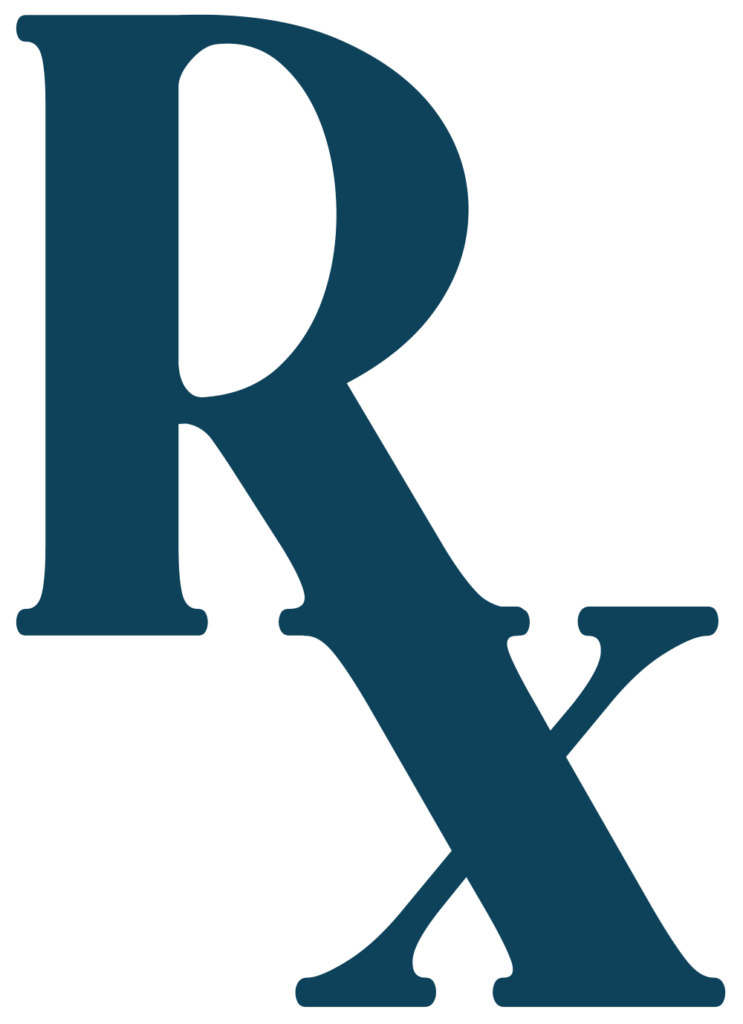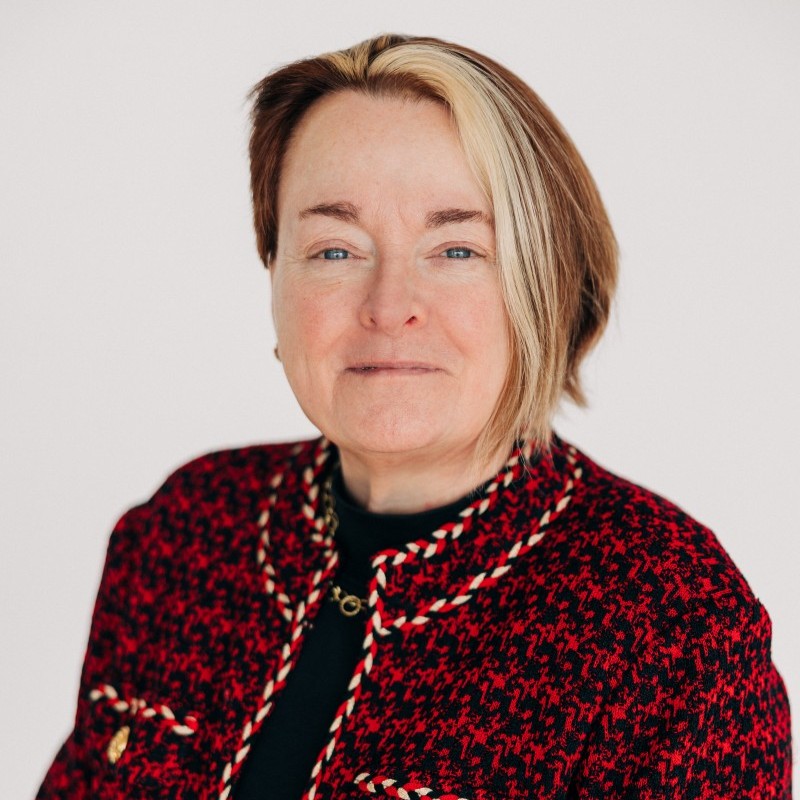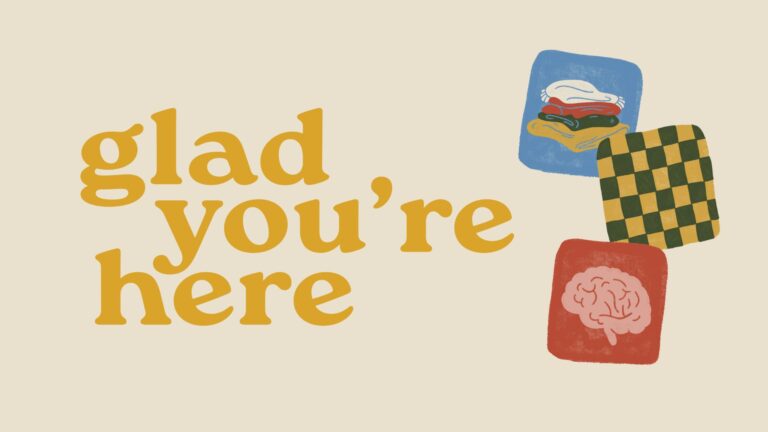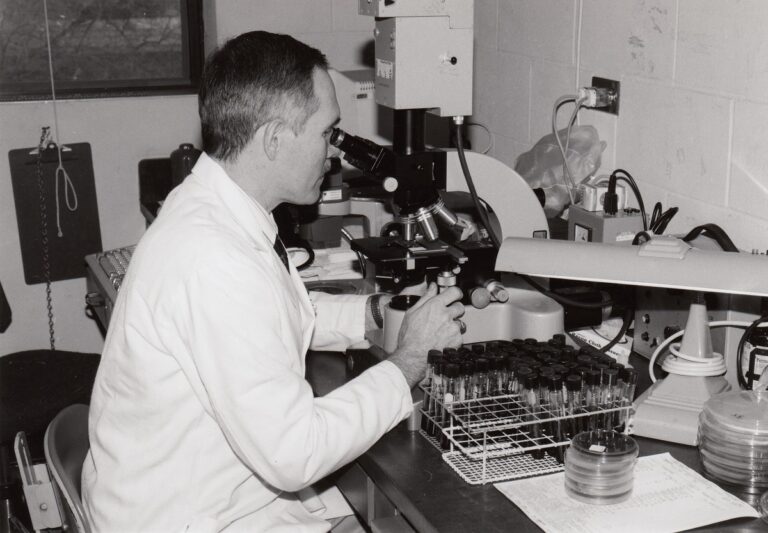NDSU students bring companionship and events to residents in memory care at Fargo’s Touchmark retirement community.
Read MorePrescribing Hope
When she got pregnant, Alyssa Hodges ’21, ’23, ’26 saw many obstacles between her and a college degree. At NDSU, she discovered a community ready to support her in ways she hadn’t expected.
Story by Meghan Arbegast ’21 | Photos by Kensie Wallner | March 25, 2025

The sterile scent and white walls of a hospital setting is something Alyssa Hodges ’21, ’23, ’26 is quite familiar with. In sixth grade, Alyssa was diagnosed with arthritis. The four-hour-long car rides to and from Minneapolis to receive infusions every other week quickly became ingrained in her memory.
It was in those moments when her care team became her heroes and role models, transforming a frightening experience into one filled with compassion and hope.
“Having such empathetic nurses and doctors providing great care to me, it inspired me to want to be a health care provider. I wanted to give back to patients,” Alyssa said.
As she neared the end of high school, Alyssa knew in her heart that she wanted to become a doctor — but then she found out she was pregnant. The young mother-to-be worried about the obstacles she would face when she embarked on her NDSU journey. Leaving home was scary and the barriers seemed too hard to climb.
“I was nervous to balance and manage all of the things that were on my plate as a young teen mom. There were so many factors that made me feel nervous,” Alyssa said.
She decided to enroll at NDSU to prove not only to herself, but to other young mothers and her future daughter, that you can do anything you set your mind to.
Just three weeks into her first semester at NDSU, Alyssa gave birth to her daughter, Aubriella (Aubri). She remembers going into labor the night before she was set to take an exam in her anthropology class. After frantically sending an email to her anthropology professor, Travis Kitch ’03, on her way to the hospital, his response, “Welcome to parenthood,” was a comforting reassurance that everything was going to be OK.
Following Aubri’s birth, Alyssa determined she didn’t just want to attend NDSU; she wanted to get the most out of her college experience. She got involved in various student organizations, including Bison Ambassadors, Blue Key Honor Society, and Phi Lambda Sigma. She also became an ambassador for the College of Health and Human Sciences.

Through her on-campus involvement, she discovered a community ready to support her in ways she hadn’t expected. Several of Alyssa’s professors in her undergraduate program frequently checked in with her, making sure she had the resources to be successful both in and out of the classroom.
As she progressed through her undergraduate degree in biological sciences and started her master’s in public health, Alyssa’s support network grew across departments and colleges.

for Mentors Who Uplift You
In the first year of her master’s program, Alyssa met her biggest role model, Dr. Mark Strand, in his Public Health 705: Global Health class.
It was 2021, and many students were still attending classes remotely due to the pandemic. Mark, a professor of pharmacy practice, encouraged all students living in the Fargo-Moorhead area to attend class in person. Alyssa took him up on the offer.
Right away, Mark says, he could tell Alyssa had a strong passion and drive.
“She immediately stood out as somebody who was very smart, a fast thinker, and very personable,” Mark said.
It was clear to Mark that Alyssa was a student who wanted to get the most out of her degree. Mark, who serves as a senior scientist in NDSU’s Center for Collaboration & Advancement in Pharmacy (CAP Center), often extends research opportunities to his students. Soon after Alyssa started attending his class in person, Mark presented her with the opportunity to become a graduate research assistant with NDSU’s Opioid and Naloxone Education (ONE) Program.

The ONE Program, which started on campus in 2018, proactively helps communities across the state by providing resources to pharmacists and patients to educate them about opioid misuse and accidental overdoses as soon as a patient picks up their prescription from their local pharmacy.
Through a collaboration with public health units across North Dakota, the program also provides access to naloxone, a lifesaving medicine that can reverse the effects of an opioid overdose. Boxes with all the tools needed to safely provide naloxone to someone experiencing an overdose have been placed in various locations across the state. Training on how to administer naloxone is offered by local public health professionals.
Mark, who pioneered the program with fellow NDSU professor of pharmacy practice Heidi Eukel, says the program grew from the goal of ensuring predisposed individuals don’t go down a path of opioid misuse.
“We created the ONE Program to introduce safe opioid approaches for every patient in North Dakota who receives an opioid prescription. There’s a screening for their risk profile and services and support to those patients based on their risk. The work is a combination of public health and pharmacy,” Mark said.

for Research that Makes an Impact
For Alyssa, Mark’s invitation to get involved in the ONE Program was more than a resume booster, it was a chance to make an impact on something that mattered to her.
“It felt very big to me, and that I would be doing meaningful work,” Alyssa said. “My stepbrother passed away last year. He had struggled with substance misuse, so I felt like I could contribute to something I really cared about.”
Throughout her three years with the ONE Program, Alyssa has authored papers published in peer-reviewed journals, given presentations on medication safety all over the country, attended conferences where she has presented ONE Program research, and received various awards for her work.
Mark says that Alyssa is always up for a challenge, no matter how timely and data heavy it may be. When Mark needed one of the program’s graduate research assistants to help merge two data sets consisting of 30,000 patients, he recalls Alyssa was the only one who wanted to take it on without any hesitation.
“What more could you ask?” Mark said with a gleam of pride in his eyes. “She’s just highly motivated, super confident, and willing to give it her best try. That’s just an example of the kind of person she is.”
Alyssa has enjoyed every minute of her contribution to the ongoing work in the program, including working alongside faculty and attending events.
“I’ve grown a lot as a person and as a professional,” she said. “I’ve been able to have conversations with external stakeholders, and I’ve had a lot of great mentorships and real-life experience here.”
Watching the program grow over the years has been rewarding for Alyssa. From what started as a pilot program with $10,000 in funding, the ONE Program has now expanded to pharmacies in West Virginia, Idaho, and a pilot in Minnesota.
“The ONE Program has such a good reputation,” Alyssa said. “I think it has helped destigmatize conversations on opioid use disorder, shown the resources we have in our community, and made providers more cognizant about how many opioids they’re giving.”

for Finding a Career You Love
Alyssa’s involvement in the ONE Program has provided more than just valuable skills and mentors — it’s introduced her to the career she wants to enter. While her original plan was to pursue medical school, Alyssa says the opportunities provided by Mark and the ONE Program have opened her eyes to the important roles pharmacists have in health care.
It was during the annual North Dakota Pharmacy Association conference in the spring of 2022 that Alyssa remembers reconsidering her future career path.
“I was shocked to hear pharmacists can do a lot of things providers can,” Alyssa said. “I learned so much about how pharmacists are providing care, how accessible they are, and all about the great benefits of pharmacy.”

Following the conference, Alyssa knew she had found her passion. She got a job at a pharmacy and applied to NDSU’s Doctor of Pharmacy program.
“I love NDSU, and the support that I’d already established here was really important,” she said.
Aubri, who is now 7, has watched her mom graduate from NDSU two times already. Alyssa is looking forward to her daughter watching her graduate for a third time in 2026, when she earns her Doctor of Pharmacy.
“Aubri recognizes the hard work and sees it pay off. I hope when she grows up, she can look back and be like, ‘There’s nothing I can’t do,’” Alyssa said. “There’s definitely that sense of pride, but more importantly trying to ensure I express to her that the reason why I’m even doing it — a big part of it is for her and for us.”
Mark says he knows Alyssa will go out and make an impact.
“I’m just so proud of her,” he said. “I know she’s going to have an amazing future. I tell her frequently that she’ll go way beyond where I have because of her drive and her desire.”
Alyssa, who currently works at Family HealthCare in Fargo, wants to continue working in a family health setting following graduation, with the goal of utilizing both her pharmacy and public health degrees to work with underserved populations and to expand her advocacy work.
“I definitely want to stay involved,” she said. “I want to have a strong voice and keep shaping pharmacy for the future.”

Meet Dr. Teresa Conner, Dean of the College of Health and Human Sciences
What brought you to NDSU?
I was excited to see an R1 research university with a strong history of educating health care, health and human science, and exercise and nutrition science professionals. The opportunity to engage Extension and leverage the assets of a land-grant institution in improving the lives and health of North Dakotans is unique and powerful.
Why is NDSU’s R1 research status important to your College?
As the creators of new knowledge, we’re the ones defining the future. We’re developing unique approaches to education, how we work in the community, and the problems we solve.
What is your College currently investigating?
We’re excited to imagine and implement the education that our students will need to work in this technology-driven economy. I look forward to engaging our partners in this process and empowering faculty, staff, and students to dream big.
What is your vision for the future?
We’re thinking about how virtual technologies, robotics, digital health, and artificial intelligence can influence the quality of and access to health care and human services. We’re also examining the ways we can leverage these technologies to meet current and future workforce needs.
Share This Story
Related Stories
20 Years of Front-line Research
Peter Iwen '76 is the recipient of the 2023 Alumni Achievement Award, which recognizes alumni who have attained outstanding professional accomplishments.
Read More
